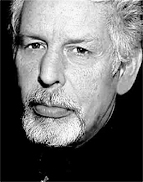 Richard Lourie
Richard LourieU.S.-Russian relations have come to a small moment of opportunity.
U.S. Ambassador Michael McFaul is stepping aside just as Russia is flush with pride over the success of the Sochi Olympics. The exuberance seems to have affected everyone, from those in Sochi whose homes were taken from them by eminent domain to Kremlin critic Alexei Navalny who has called the Games "sweet and uniting."
The transcendent spirit of the Olympics strikes again.
Thankfully the Sochi Games ended on a high note and Islamist terrorists did not chose to attack during the closing ceremony on Feb. 23, the 70th anniversary of Stalin's violent exile of the entire Chechen and Ingush nations in 1944.
Let us hope and assume that the Sochi Olympics were not, or not only, a monument to President Vladimir Putin's vanity, but also a sign of his sagacity about his country and his countrymen.
Russia's experience since the Soviet collapse 23 years ago has been defined by a humiliation that New York Times columnist Thomas Freedman rightly called "the single most underestimated force in international relations."
So the Sochi Games were not just a festival of graft and vanity, not just a grandiose resort and real-estate development, but a canny move to heal the Russian soul.
Two possibilities present themselves here. Putin could become swell-headed from the success of the Games and feel emboldened to act in an even more authoritarian manner, or his new-found sense of pride might free him from the need to see an enemy in every critic and in every foreign-supported NGO an agent of sedition.
If we hope and assume the latter, then how should the U.S. take advantage of this moment, the inflection point?
First, it should be remembered that although relations are bad, they are not only bad. The picture is complex and textured. The U.S. and Russia quietly cooperate in space and in the transporting of personnel and material to and from Afghanistan, factors more important but less newsworthy than, say, Pussy Riot or one leader snubbing the other at an international conference.
"So long as Putin is president of Russia, it is hard to see how the bilateral relationship can change fundamentally. … The best that can be done is to minimize damage and preserve the significant areas of cooperation that still exist," Mark Kramer of the Davis Center for Russian and Eurasian Studies at Harvard University recently wrote on these pages.
But Putin could easily be president for another decade. That is 2 1/2 U.S. presidential administrations away. That is Chinese President Xi Jinping's entire term.
Of course, if Putin decides to remain ornery and recalcitrant, there is not a lot anyone can do about that. But Russia, while important in and of itself, is ultimately just one part of the puzzle of a U.S. foreign policy that must center on China. Since China is still very much a work in progress, U.S. policy on China must be marked by flexibility. But flexibility alone cannot define foreign policy. Once the U.S. has made up its mind about China — competitor? rival? enemy? — it will have a better idea where Russia fits in. It is this lack of a policy more than Putin's attitude that is keeping the U.S. stance on Moscow on hold and that will make the next ambassador to Russia something of an interim appointment.
Or maybe we will all soon be too busy fighting floods and blizzards to worry about borders and old grievances.
Richard Lourie is the author of "The Autobiography of Joseph Stalin" and "Sakharov: A Biography."
A Message from The Moscow Times:
Dear readers,
We are facing unprecedented challenges. Russia's Prosecutor General's Office has designated The Moscow Times as an "undesirable" organization, criminalizing our work and putting our staff at risk of prosecution. This follows our earlier unjust labeling as a "foreign agent."
These actions are direct attempts to silence independent journalism in Russia. The authorities claim our work "discredits the decisions of the Russian leadership." We see things differently: we strive to provide accurate, unbiased reporting on Russia.
We, the journalists of The Moscow Times, refuse to be silenced. But to continue our work, we need your help.
Your support, no matter how small, makes a world of difference. If you can, please support us monthly starting from just $2. It's quick to set up, and every contribution makes a significant impact.
By supporting The Moscow Times, you're defending open, independent journalism in the face of repression. Thank you for standing with us.
Remind me later.





